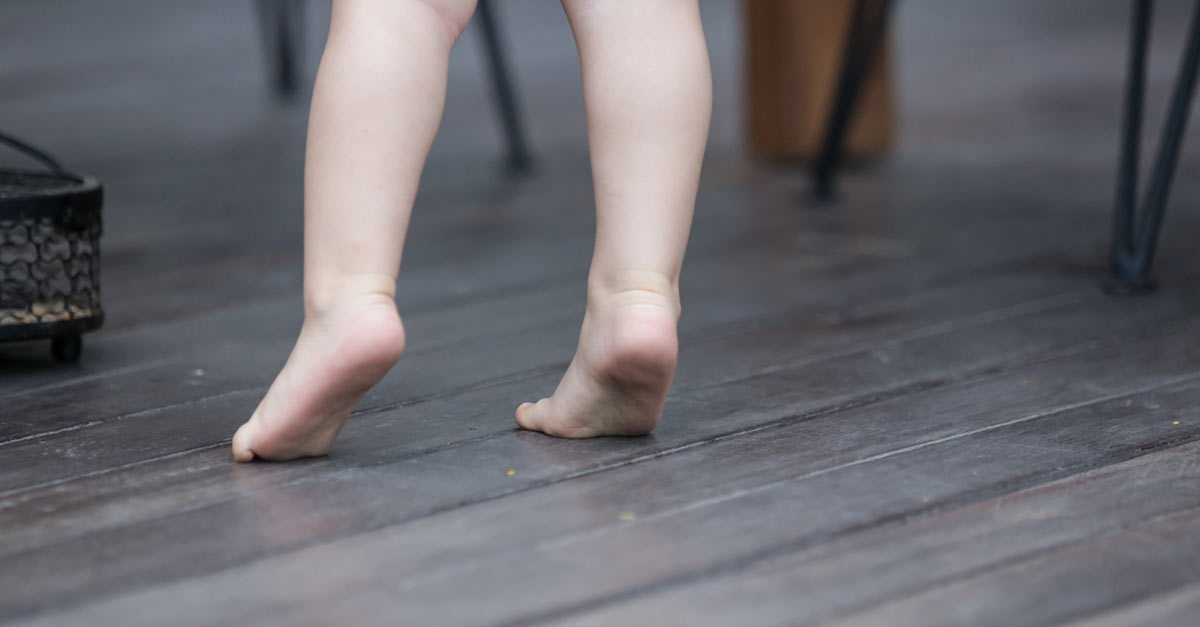
What is Toe Walking?
Toe walking can be understood as a pattern or method of walking in which a kid walks on the balls of their feet without having any contact between the heels and the ground.
It's an abnormal pattern to be observed in one’s gait, but it can be observed in children during the developmental stages. In the majority of cases, abnormal walking will naturally regress or pass away within six months or after two years of age. If the child continues this walking pattern beyond two years of age, then the child is diagnosed with persistent toe walking.
Why Children on the Spectrum Toe Walk?
Toe walking is not a rare characteristic found in children on the spectrum. Some of the reasons behind toe walking are mentioned below.
High Oxalates
The oxalates are generally found to be at higher levels in these children as compared to the neurotypical children. Oxalate and its acidic properties are derived from three sources: our diet, fungi like Aspergillus, Penicillium, and Candida. The crystals are deposited in the joints of the bones, which can result in toe walking.
Constipation
If your child's bowel movements are irregular or difficult, or if they are constipated and have not been able to pass stools regularly, then they may be uncomfortable or in pain. To alleviate or deal with the tightness of the stool or the pain they usually feel in their tummy, many kids prefer to walk.
Vitamin or Nutrient Deficiencies
Your child may have Deficiencies in magnesium, zinc, or thiamine (a B vitamin) levels can be another cause of toe-walking. Vitamin B12 deficiency, for example, can affect the central and peripheral nervous systems and affect the way people walk.

Food Sensitivities and Allergies
Food sensitivities or allergies can make your ward feel anxious, irritable, or stressed. This can result in toe-walking as well.
Sensory Processing Difficulty or Disorder
In the case of a child facing a problem with a sensory processing disorder, they may be seeking additional input in their feet, toes, and lower legs. To achieve this, they may begin toe-walking, as it provides extra sensory input.
Eye Development Issues
A child on the spectrum may toe-walk because of depth perception issues or a visual processing disorder, which in turn can affect the cycle of messages being sent from their eyes to their brain and back to their body. These perception issues can be a reason for a variety of problems, including toe-walking.
How to Prevent Your Child From Toe Walking?
Inculcating Stretches and Ankle Weights
It is a common observation and a fact that toddlers lack flexible muscles. So, stretching exercises help loosen stiff muscles and enable them a better range of movement. A proper ankle weight can aid in strengthening your child’s tendon and enable them to walk normally on the ground.
Change of Shoes
The correct pair of shoes with right ankle support will prevent toe walking. Encourage your child to wear shoes often to help him walk on his feet.
Try Tactile Training
If your child walks barefoot on surfaces with different textures, like grass, sand, some stones, etc. This will give him a perception of what it feels like to walk with his whole feet pressed on the ground, which can allow him to understand the real nature of walking. You can even attempt a similar activity with a multi-textured path at home by using carpets, pillows, cardboard, blankets, etc.

When should you Consult a Doctor?
- When your child is constantly walking on his toes, even beyond 2 years of age.
- If you think or believe that your child has stiff muscles in the leg and foot regions.
- If the child is unable to maintain his or her balance or lacks coordination while walking, e.g., if he or she stumbles very often.
- If the child has delayed motor skills, If he or she is unable to walk or crawl beyond his or her ideal developmental milestone, then it is advised to contact a professional.
- He or she has regressed on the motor skills that he or she already had.
- If the child has trouble bearing weight on his or her feet.
Role of Functional Medicine in Dealing with Toe Walking
Functional medicine can be understood as an individualized, patient-centered, science-based approach that empowers parents, caregivers, and practitioners to work together to convey the underlying causes of disease and promote optimal wellness for the child. In functional medicine, we do a root cause analysis to find out the reasons behind your child’s toe walking and design a personalized treatment plan to correct the same.


.png)


